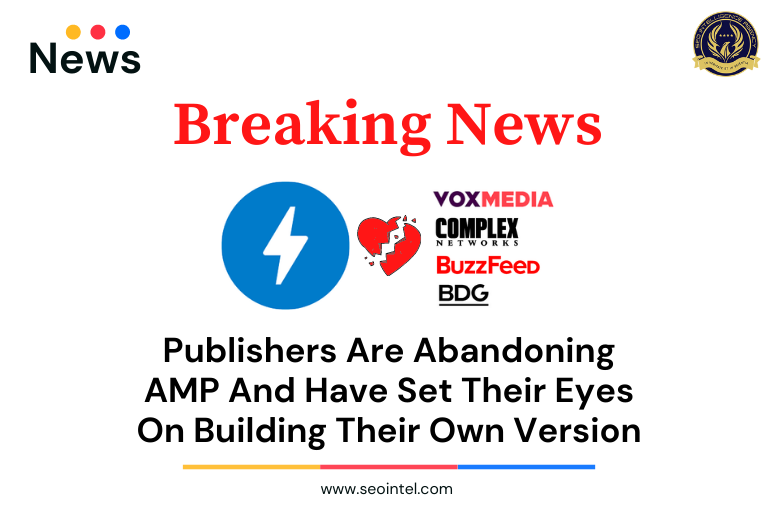
AMP (Accelerated Mobile Pages) was introduced in 2015 to create a better online experience through faster loading mobile pages. Media companies created special article pages under AMP that were meant to load quickly on mobile and that eliminated some ads, to help make their content easier to find. At that time, Google said that AMP would make the “World Wide Web great again”.
In 2020, Google started giving less importance to AMP as it set its eyes on Page Experience and its different Core Web Vital Metrics under it. The AMP requirement for appearing in the Top Stories Carousel has also been dropped last year, with the publishers no longer needing AMP pages in order to show up in the Top Stories of the Search Results.
Following these moves, several large online publishers are taking the step to abandon AMP. This includes Vox Media (Vox, The Verge, and SB Nation), BuzzFeed, Complex Networks, and BDG (Gawker and Bustle). The Washington Post has also confirmed that they have stopped publishing AMP versions since last year.
These publishers have also said that they have started testing or are considering using their own versions of mobile-optimized article pages. This move is meant to give the sites more control over their page designs, their ad formats, and subscription offerings.
According to the Wall Street Journal Article:
“Media executives and consultants said they expect non-AMP pages to garner at least 20% more advertising revenue than AMP pages in most cases, without affecting loading speeds.”
Looks like AMP has failed in making the “World Wide Web great again” and publishers are setting on their own path to reach it.